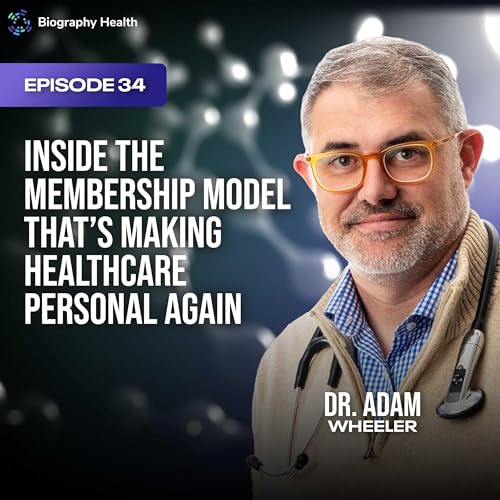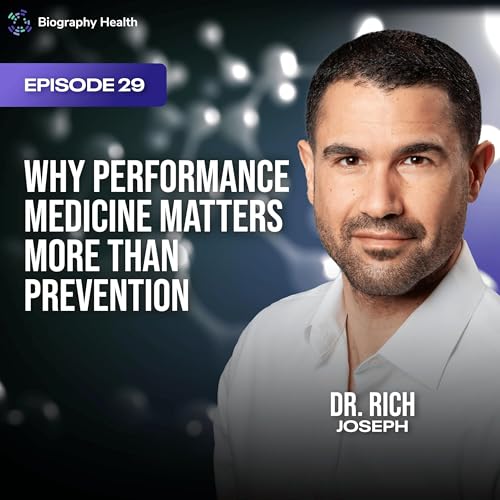The traditional healthcare system is breaking under the weight of burnout, short appointments, and profit-driven incentives, and Dr. Adam Wheeler has lived it from the inside. After losing a patient and realizing that all his creative energy was going into improving metrics instead of improving lives, he decided to build something radically different.
In this episode of Precision Medicine Made Simple, recorded live at Bigtree Medical in Columbia, Missouri, Dr. Wheeler joins host Taylor Cu and co-host Dr. William Stanford to share how he reimagined primary care from the ground up. His direct primary care network now serves more than 13,000 patients with a model built on unlimited time, transparent pricing, and authentic, patient-centered relationships.
You’ll hear how Dr. Wheeler’s model leverages nurse practitioners to expand access, integrates genetic and metabolic testing to personalize care, and embraces patient-requested treatments such as testosterone therapy, compounded GLP-1s, IV infusions, and preventive protocols. He also discusses how AI and shared decision-making empower patients to take control of their health, creating a system that rewards outcomes instead of volume.
This conversation explores what it truly takes to make healthcare personal again and why the future of medicine belongs to those willing to rebuild it from trust, data, and compassion.
Key Takeaways
- Why Dr. Wheeler walked away from the traditional insurance model
- How the direct primary care (DPC) membership system works and why patients love it
- The role of nurse practitioners in solving the physician shortage
- How Bigtree trains new NPs to lead with empathy and precision
- Why shared decision-making is critical to modern medicine
- What peptides, testosterone therapy, and GLP-1 medications mean for personalized care
- How AI tools are empowering, not replacing, doctors
- Why genetic and metabolic testing helps patients “know the fight they’re fighting”
- The real difference between health span and lifespan and how to extend both
- What the future looks like when healthcare becomes proactive instead of reactive
In This Episode
- [00:00] Turning points in medicine
- [01:17] Intro to Precision Medicine Made Simple
- [02:39] Meet Dr. Adam Wheeler
- [05:49] Membership model explained
- [07:23] Bigtree care models
- [08:19] Scaling intimacy in care
- [08:48] Direct vs. concierge care
- [09:51] Innovative patient care
- [31:34] Genetics and cancer risk
- [33:11] Personalized medicine
- [34:06] Motivational interviewing
- [35:11] Prostate cancer and genetics
- [49:50] AI in healthcare
- [53:01] AI’s role in medicine
- [56:39] Bigtree Medical vision
- [57:48] Final thoughts
Notable Quotes
- [05:43] “It’s really sad that all this creative energy is going to juicing the numbers, as opposed to taking care of people.” — Dr. Adam Wheeler
- [05:24] “We allow our patients to leave our practice at any time. If we do a bad job, they’re supposed to leave, and if we do a good job, they stay.” — Dr. Adam Wheeler
- [14:27] “The direct pay model absolutely changes your incentives as a doctor… it forces you to care about the things patients actually care about.” — Dr. Adam Wheeler
- [38:21] “There’s nothing you can do about the Lp(a), but you need to really optimize all of your other numbers.”— Dr. Adam Wheeler
- [55:19] "I think before we have AI replacing me, we're gonna have me enabled with AI." — Dr. Adam Wheeler
Our Guest
Dr. Adam Wheeler is a
 44 m
44 m 59 m
59 m 1 h y 24 m
1 h y 24 m Oct 10 202554 m
Oct 10 202554 m 42 m
42 m 37 m
37 m 1 h y 2 m
1 h y 2 m Aug 11 20251 h
Aug 11 20251 h
